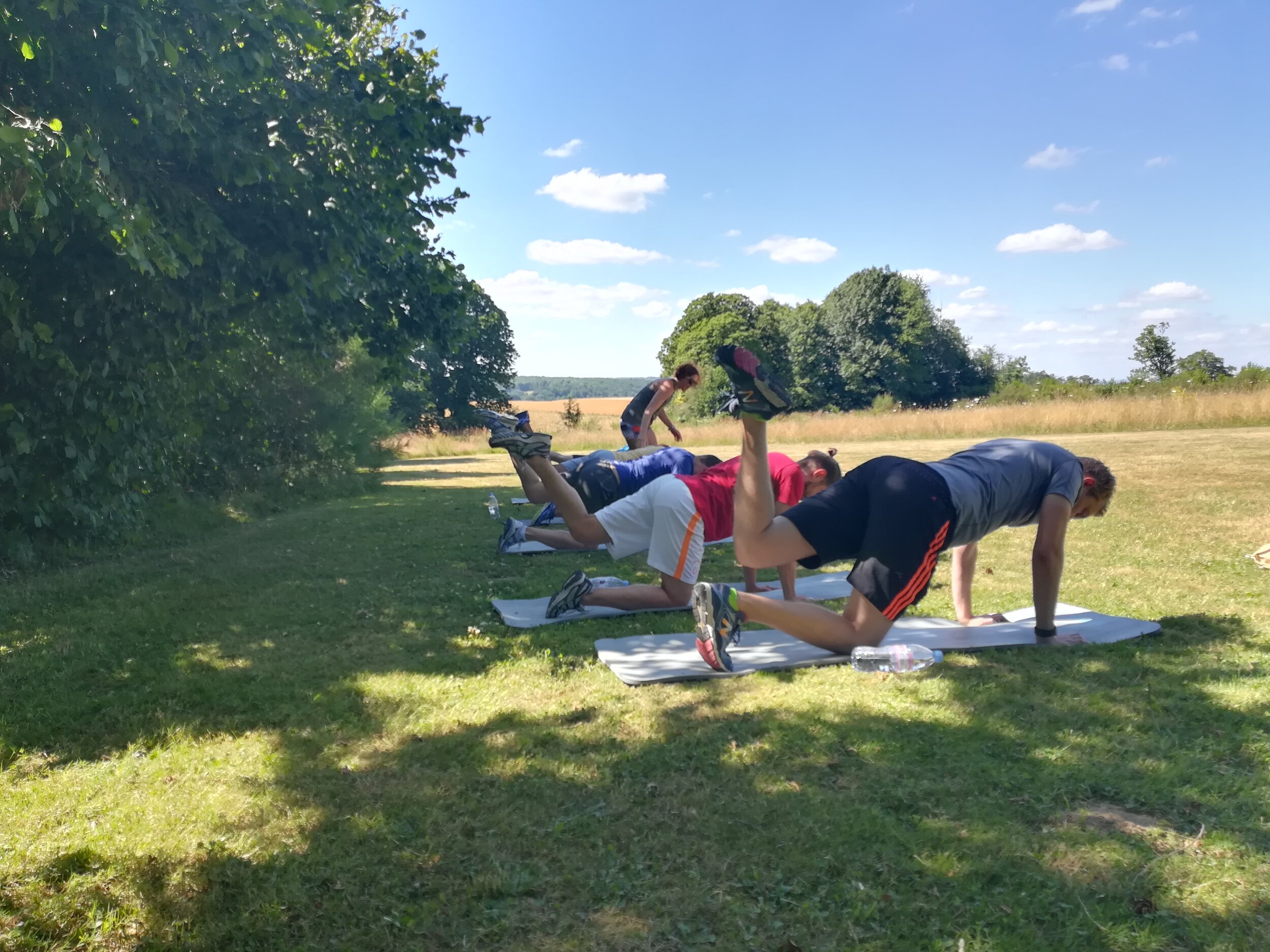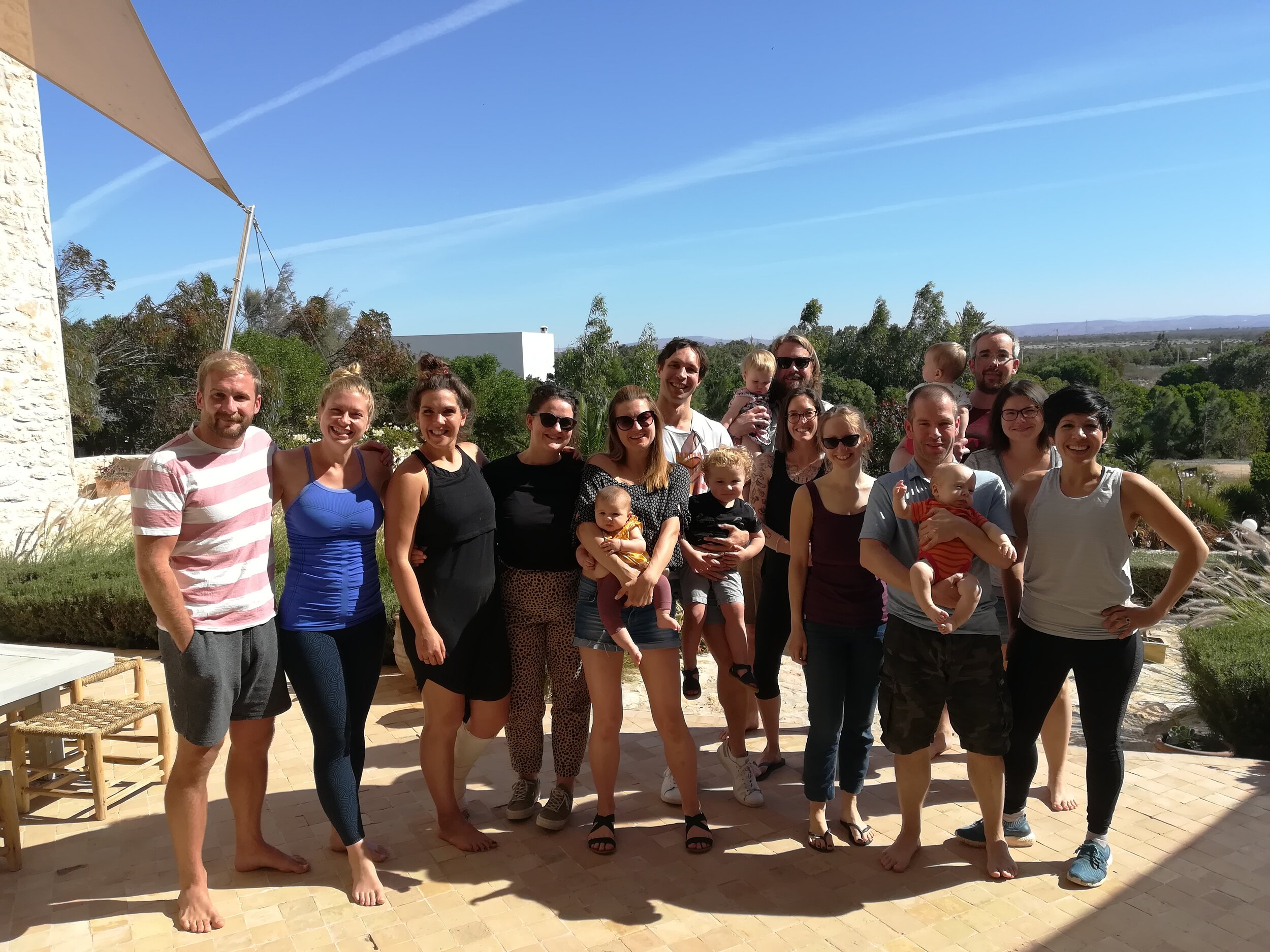Feeling ‘Touched Out’? It’s a thing and you’re not weird.
Honestly - I’ve got you - get in touch with any questions! hello@andbreathewellbeing.com
Feeling ‘Touched Out’? It’s a thing and you’re not weird.
Touch is a basic human need and essential to our wellbeing. Hugging and other forms of nonsexual touching cause the brain to release oxytocin known as the ‘bonding hormone’. Touch stimulates the release of other feel-good hormones such as dopamine and serotonin, reducing stress hormones cortisol and norepinephrine.
We all know the benefits of a big bear hug or having your hand held when you’re sad or need reassurance. Touch is what makes us human and it can be both exhilarating and grounding. Furthermore, research has shown that positive touch for children improves calmness and concentration, increases self-confidence, self-awareness, and self-esteem and improves social skills.
Yes, the benefits of touching are tangible but being ‘touched out’ is a modern phenomenon being experienced by mothers and it’s getting more and more traction on social media.
‘Touched out’ is a state of overwhelm or agitation that arises due to high demands for physical contact from another being. It’s common for mothers and occurs more often during their child’s infancy and toddlerhood. Mums have even described a skin-crawling sensation and claustrophobic feeling - can you relate?
I contributed to an article in The Sun on the subject and it’s something I feel very strongly about. In fact, it’s one of the reasons I set up my wellbeing retreat business &Breathe.
Come up for air.
Book our award-winning Postnatal, Family or Menopause retreats, for your body AND mind. Click HERE for more >>>
While human touch is essential to mental health, having time alone is too. It’s incredibly common for us not to need or want further hugs, kisses, or physical contact with our partners at the end of a long day of parenting.
It can take a long time to transition from mum mode to wanting intimacy. It’s essential to decompress and feel like ‘you’ again before you can even process your innate needs.
If this blog is resonating, here are four practical tips you can do right now.
Take a break. Ask for help and spend some time alone.
Communicate. Talk to your partner or friend. Sharing how you feel is key.
Add in touching that is beneficial to your wellbeing. Book a massage or pedicure. It will help rewire your brain to see that touching can be pleasurable.
Lower your expectations, you can’t be everything to everyone. Doing your best is enough.
I cover this topic extensively in my debut book Get Your Mojo Back. And one of my expert contributors, Emma Svanberg, a perinatal clinical psychologist, says: “We can all relate to feeling ‘touched out’. It’s important to note that hormones play a part as well, as with the drop in oestrogen after birth, so it’s not just a mental issue.”
“What is the good of your stars and trees, your sunrise and the wind, if they do not enter into our daily lives? ”
Make yourself number one today and book your ‘me time’ in June 2024. Allow yourself to exhale in the glorious surroundings of Manoir De La Croix de La Jugie. Relax, exercise, eat, drink and above all, feel human again.
Come on a retreat and exhale. Honestly, it makes such a difference. Booking a holiday is a big decision, so if you have any questions, just drop me a line or Whatsapp me.
Until next time, you are doing so amazing, remember to come up for air.
Love, Clio x
At &Breathe we’re passionate about wellbeing for postnatal, families, and peri-menopause. We do this through award-winning expert retreats, and at home programmes. Click below to learn more:







